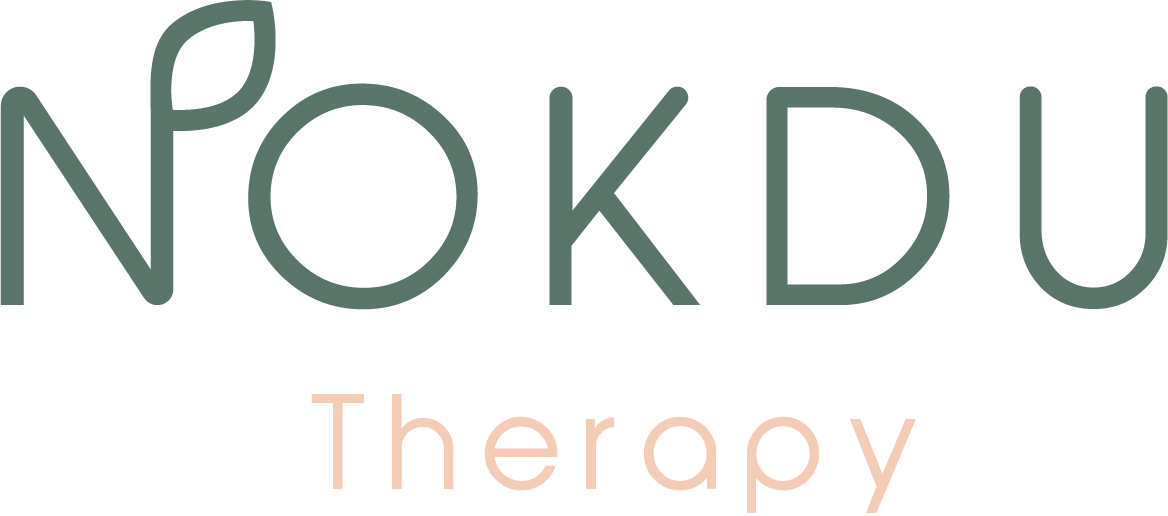Nokdu’s Practical Guide to the 4 Modules of DBT
So you’re looking for evidence-based practices or for skills to help you in daily life, and you stumble across this acronym over and over again - DBT. Psychologist Marsha Linehan developed DBT (Dialectical Behavior Therapy) in the 1980s, much of which benefits from the wisdom of people from the Global Majority who have long practiced Buddhist philosophies and spirituality. While DBT was originally conceptualized to help those who were self-harming or suicidal, its skills are of use to everyone else as well. Who doesn’t need a breakdown of how to practice Reality Acceptance or ways to utilize Mindfulness in a manner that works for you? DBT, when paired with a therapist who knows the material, is exceptional at breaking down big concepts and vague buzzwords into actionable, step-by-step tasks. Read this if you’re interested in the week-by-week structure of DBT, but here is Nokdu’s quick walkthrough to help you better understand the content of DBT - aka the Modules.
Module 1: Mindfulness.
Capitalism, trauma, and grind culture make it hard, especially for BIPOC and QTIBIPOC folks, to be present in the moment and in our bodies. This module aims to help you become first aware of your senses and then go about daily life with that sense of centeredness. During this time, a skilled therapist will work with you to personalize what mindfulness looks and feels like to you, and with a healthy dose of practice, it will help you navigate even the most stressful moments of your life. Mastery of this module will help you judge yourself less, as well as engage in the present moment fully.
Module 2: Distress Tolerance
Well, now you’re in touch with what’s going on internally - but what if it’s overwhelming? BIPOC and QTIBIPOC people continue to live under multiple systems of oppression, and most of us have a long history of generational trauma that can make tapping into our bodies or the present moment difficult or uncomfortable . Don’t worry - this module is all about helping you cope with the push and pull of life’s tides, whether it is helping you find distractions to buy time or utilizing the body’s automatic systems to shock your brain out of a negative spiral. Some are deceptively simple with ideas you may already use, with acronyms like STOP (Stop, Take a step back, Observe, Proceed), while others like Half-Smiling present options that you might have never heard of before.
Module 3: Emotion Regulation
So you know what’s going on and can roll with the hardest punches - now how about something to help you manage your levels of emotional reactivity? We must keep in mind that emotions are not exempt from becoming racialized and gendered constructs. Capitalism tells us to stuff down our emotions and keep going, femmes of color - especially Black femmes - are told not to be so angry or aggressive, and masculine of center BIPOC folks are judged for emotional displays . DBT teaches that trying to ignore, judge, or make emotions go away actually makes them build up and come out in ways we least expect or want. Skills like Cope Ahead or Opposite Action set you up for long-term success and prevent those pesky, roiling emotions from boiling over. A DBT therapist will be able to help you sort out what are effective emotions and which ones might be bringing you away from your goals.
Module 4: Interpersonal Effectiveness
While this module doesn’t directly address emotions, it’s arguably the most important - how can one expect to survive in this world if we don’t have community? BIPOC folks, especially LGBTQIA2s+ folks, have survived this long because of the powerful enclaves, chosen families, and micro-ecosystems that we’ve built together. After all, navigating society’s obstacles, everyday daunting tasks, and inevitable, difficult life events feel less overwhelming if we have friends to help out, and DBT certainly doesn’t expect that everyone navigates life alone. The skills here will help you set boundaries, conceptualize interactions in a way that helps you meet your goals, and more via easy to follow steps.
If you think these modules might help improve your life, reach out to a DBT trained therapist for a consultation call. At Nokdu, we currently have DBT therapists Gonji Lee, Arthur Sun, and Ariadna Armenta ready to answer questions and help you get the care you’ve been looking for.
Click to here to read about Nokdu’s breakdown of the values of DBT and how a white woman’s psych research is actually seeped in Asian traditions.
